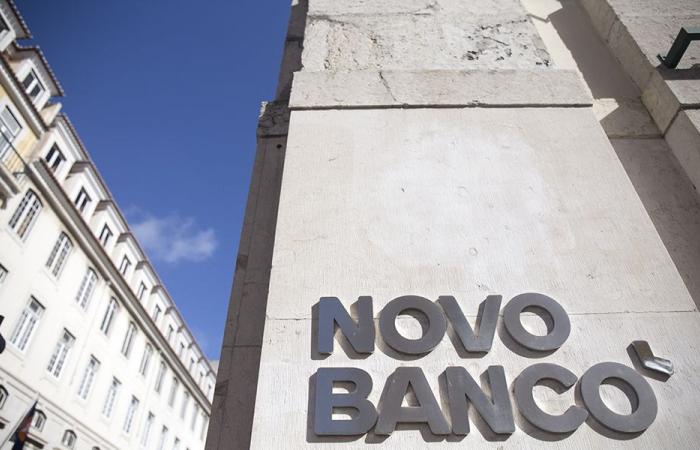
The CJEU’s attorney general came to agree with Novobanco, which was supported here by the Bank of Portugal and the Resolution Fund, against the victims of the former BES Spain.
The Advocate General of the Court of Justice of the European Union (CJEU), Jean Richard de la Tour, in a report published this Thursday gives his opinion on the “requests for a preliminary ruling presented by the Supreme Court (Spain)” presented within the scope of disputes between Novobanco — Branch in Spain (Novobanco Spain), supported by the Bank of Portugal and the Resolution Fund, and several clients of Novobanco Spain, which succeeded Banco Espírito Santo — Sucursal in Spain (BES Spain), a branch of the institution Portuguese credit company Banco Espírito Santo, to which Novobanco succeeded following the resolution measure adopted by Banco de Portugal as Resolution Authority.
The aforementioned requests concern the impact, on different contracts for financial products and services, of the resolution measure applied to BES.
In one of the cases, one of BES Spain’s customers had, in January 2017, claimed from Novo Banco Spain the reimbursement of the amounts charged by BES Spain due to the application of the “minimum rate clause” of its 2% mortgage loan, which was considered abusive by ruling of May 9, 2013, by the Supreme Court of Spain, which invoked a lack of transparency in these “minimum rate clauses”. The credit dated back to 2006 and in 2013 the customer asked BES Spain to stop applying the “minimum rate clause” contained in his credit, which BES Spain did from June 2013 onwards.
“Minimum rate clauses” were clauses contained in variable rate mortgage loan contracts concluded with consumers by a significant number of financial institutions in Spain. These clauses set a threshold (or floor) below which the variable interest rate could not fall, even if the reference rate (generally Euribor) was lower. When reference rates fell significantly below this threshold, consumers realized that they could not benefit from that fall and that they would have to
continue to pay the minimum interest rate (generally set between two and five percentage points), despite having entered into variable rate mortgage loans. This led customers to file thousands of legal actions in Spain in which they asked for the illegality of the “minimum rate clauses” to be declared and for the refund of interest paid in excess.
This is what happened to a BES Spain client, the problem is that BES was subject to resolution and Novobanco was created, the branch becoming Novo Banco Spain.
What was discussed here, and which the Advocate General of the Court of Justice of the European Union (CJEU) Jean Richard de la Tour now defends in a report of conclusions published this Thursday, is that the justification of Novo Banco Spain that is opposed the action “invoking an exception relating to passive illegitimacy”, since the credit that could have arisen in favor of that client and which consisted of the refund of the amounts received by BES Spain as a result of the application of the “minimum rate clause”, had not was transferred to Novobanco within the scope of the application of the resolution measure to BES by Banco de Portugal which occurred on August 3, 2014.
The document also reveals that on December 29, 2015, “the Bank of Portugal adopted two decisions to amend and clarify Annex 2 of the August 2014 decision, which specifically clarified that, from that day onwards, ‘credits and compensation related to the alleged annulment of certain clauses of loan contracts in which BES was the lender were not transmitted to Novobanco”.
Then there is another case in which two customers, on April 17, 2017, filed a lawsuit against Novobanco, asking, primarily, for the cancellation of the two financial products that BES Spain acquired for these customers who had opened a securities account securities and signed an investment portfolio management contract with BES in Spain. The customers invoked the subscription “due to an error in the consent, due to the insufficiency of the information that BES provided them”. In the action, the customers requested “the reciprocal refund of the amounts received by each of the parties, plus interest from the date of each payment and, in the alternative, compensation for the losses suffered when purchasing the two financial products, plus the interest calculated at the legal interest rate from notification of the action”.
At the time, Novo Banco España opposed the action “invoking an exception of passive illegitimacy since the credit that could have arisen in favor of these customers, and which consisted of the refund of the amounts paid by the latter in terms of financial products due to the possible nullity of contracts or compensation for losses suffered due to the fact that these customers were not informed of the risks of the financial instruments in question, had not been transferred to Novobanco due to the reorganization measures adopted by Banco de Portugal in relation to BES”.
The third case has to do with the famous retransmission of Novobanco’s senior bonds to BES in 2015, a decision taken by the Bank of Portugal, to recapitalize the transition bank and which was taken under the 2014 resolution measure.
In this case, on November 17, 2014, the company Proyectos, Obras y Servicios de Badajoz, (POSB), acquired, on the secondary market, a bond of the type “Senior Bond NB 6.875 % maturity July 2016”, expiring on November 15, 2014. July 2016, which had been issued by BES, but, at the time of its acquisition by POSB, through an investment company, this unsubordinated debt instrument was part of Novobanco’s assets, to which it had been transferred pursuant to the decision of August 2014. In July 2015, Novobanco also paid POSB an income corresponding to the 2014-2015 annual fee. When the obligation came to an end on 15 July 2016, Novobanco neither paid the mandatory income for 2015-2016 nor refunded the nominal value of that obligation to POSB.
In response to the complaint, Novobanco indicated that the refusal to pay was based on the decisions of December 29, 2015, which had “retransmitted” the liability associated with this obligation from Novobanco to BES (bad bank). On June 25, 2017, POSB filed a lawsuit against Novobanco, requesting payment of the income corresponding to the 2016-2016 annual fee of the obligation and the refund of the amount corresponding to its nominal value. The bank opposed the appeal, once again invoking “an exception of passive illegitimacy” since the liabilities associated with the obligation had been retransmitted to BES.
The three cases have in common the fact that they took place in a subsidiary in a country different from that of the parent company that was the target of a Resolution Measure. This implies the recognition, in a host Member State, of the effects of a decision of the competent administrative authority of the home Member State that was not published there (in Spain).
Here the lawyer proposes that the Court of Justice, first, “consider that the lack of publication (…), the purpose of which is to allow third parties to appeal against the Resolution measure in the Member State of origin, has no impact on the effects of recognition of this measure in the host Member States”.
Secondly, it proposes that the Court of Justice consider that individuals cannot invoke legitimate expectations in relation to a bridge bank created within the framework of a resolution measure.
Thirdly, it proposes that the Court of Justice consider that compensation claims associated with a contract can be left in the liabilities of a bank subject to a Resolution measure with the creation of a transition bank to which only certain assets and certain liabilities.
The CJEU’s attorney general thus came to support Novobanco, which was supported here by the Bank of Portugal and the Resolution Fund.
Tags: Advocate General CJEU agrees Novobanco BdP FdR clients BES Spain
--




